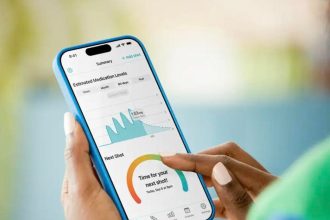Co-Founder and CEO, Cover Genius.
Live entertainment ticket sales in the past year have grown tremendously. The top 100 tours of 2022 grossed a record-setting $6.28 billion—notably higher than the $5.5 billion in sales generated during the pre-pandemic year of 2019. The demand is fueled by several factors, among them a desire to enjoy these kinds of in-person experiences after a period of pandemic restrictions as well as the anticipation of big-name artists like Bad Bunny, Elton John and Taylor Swift performing live again.
While demand and revenue are soaring higher, consumer confidence remains shaky. Festival and event companies still need to focus on converting the cohort of buyers who are hesitant to book—whether it’s because of uncertainty around planning, cancellations or other concerns. Fortunately, there are a number of services and offerings ticketing platforms and venues can implement to increase confidence and reduce friction when booking, so their customers aren’t backing out or waiting until the last minute to purchase.
Fintech Services
Ticket holders often find themselves booking expensive seats months in advance. As prices climb—the average price of a ticket in 2022 was nearly 18% higher than in 2019—customers may be wary of putting money down on a show that they’re not completely sure they’ll be able to attend. One tactic being used by ticketing platforms to encourage their customers to book is the adoption of fintech offerings. For example, buy now, pay later (BNPL) gives customers greater flexibility when making bigger purchases. By giving customers the ability to choose among multiple BNPL payment plans, you can provide them with even more purchase options.
I also recommend offering a variety of payment options—including PayPal, Apple Pay and other digital wallets—and streamlining your site navigation to ensure the most user-friendliness. These tactics help reduce friction so customers can finish their purchase with confidence rather than quitting the process partway through due to confusion or discouragement.
Ticket Refund Protection
For those customers who may be more reluctant to pull the trigger, offerings like cancel for any reason (CFAR) refund protection can provide them with further peace of mind, as they don’t have to worry about what’s covered and what’s not. My company’s consumer-focused study found that consumers are willing to pay 123% more for CFAR protection than non-CFAR protection. And if you’re worried about higher cancellation volumes, you can also integrate with platforms that can issue refunds via any payment method, including credits that the consumer can use for future purchases on their site.
Ticketing platforms that offer CFAR protection are seeing a lift in core conversions, as well. The same consumer study found that 63% of ticket holders globally are highly likely to purchase a live event ticket if offered the option to add CFAR protection. The convenience of CFAR gives rise to this “protection effect” that encourages customers to complete their bookings, with the reassurance of a fast and frictionless refund process. A more customer-centric experience leads to higher satisfaction, and with fewer late cancellations, ticketing platforms can generate their own flywheel for more resales and higher attendance.
However, ticketing platforms should be careful to choose CFAR protection that is sustainable and fair for customers who need to cancel their plans. Some traditional CFAR programs offer non-dynamic deductibles as well as lengthy “no sale” periods that inhibit opportunities for resales. To address this, make sure your CFAR protection accounts for the date of cancellation and the date of purchase when determining the deductible, as well as minimal, tiered blackout periods.
Advanced Innovations
New innovations have also enabled ticket buyers to more accurately preview the type of experience they’ll have at their next event. Similar to how AR has allowed online shoppers to virtually “try on” clothing, 3D mapping technologies can help ticket holders see a 360-degree view of the seat they’re buying at the time of booking, which may be the final push they need to finalize their reservation.
Ticketing platforms can develop their own 3D interactive features or integrate with a number of third-party services that offer turnkey solutions. For example, Ticketmaster has launched a seat-viewing feature that they’ve rolled out to hundreds of unique venues, making it easier for their customers to commit to their booking. Its release at London’s Tottenham Hotspur Stadium led some Premier League teams to increase their active user base by nearly 40%.
Fans will always flock to festivals, events and shows despite higher prices and longer queues. But to reach those consumers that might be lingering on the checkout page, who want to buy those tickets but (understandably) have their reservations, ticketing platforms should make it as easy as possible for them to follow through by upgrading their booking experience and helping them safeguard their purchase. Ticket protection and other tech-driven offerings can help you give your customers that final boost of confidence to book those memorable experiences.
Forbes Business Council is the foremost growth and networking organization for business owners and leaders. Do I qualify?
Read the full article here





